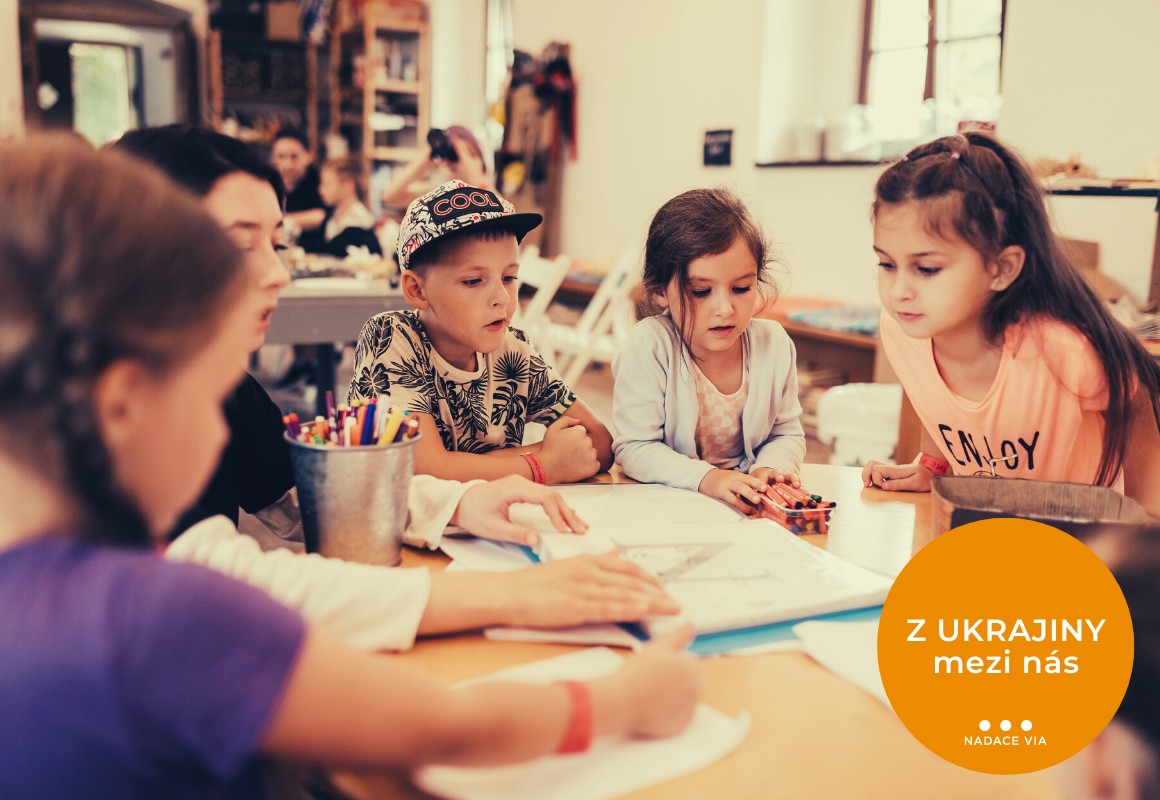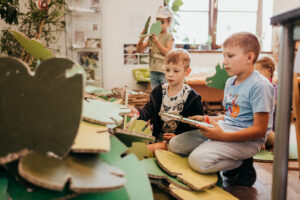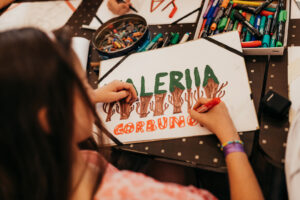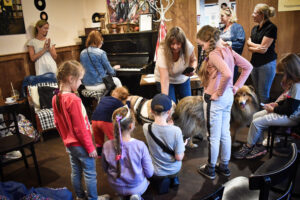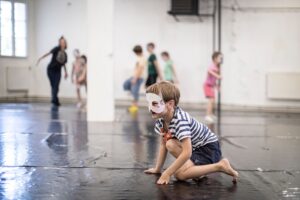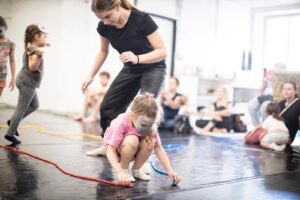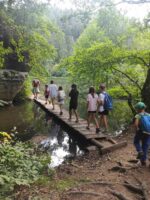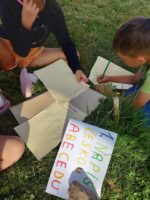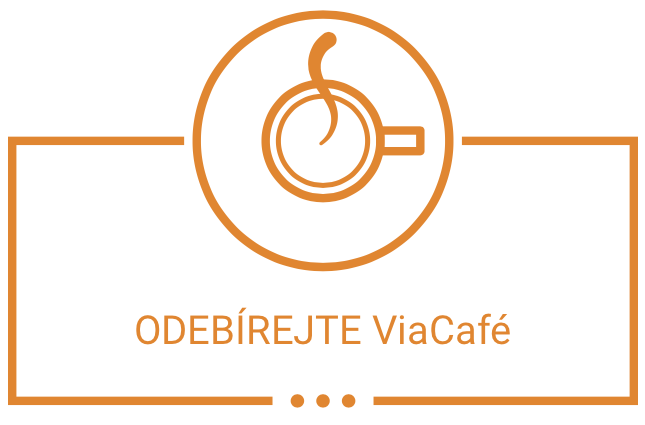It’s a hot August afternoon, the summer holidays are in full swing, but at the Information Centre in Klatovy children and walking in with textbooks and notebooks. Their afternoon Czech lessons are about to start. Most of them will begin attending Czech school in September and knowing the language is crucial for a successful start. This summer prep school is one of the hundreds of projects that Via Foundation has been able to support thanks to its many generous donors.
From Ukraine to Czech towns and villages
Wednesday, August 24th marked six months since the Russian invasion of Ukraine and the current situation does not indicate any forthcoming resolution of the conflict. As a result, some people are directing their support to organizations working to integrate Ukrainian refugees into daily life instead of sending aid directly to Ukraine. At Via Foundation, we observed an analogous shift among many of our previous grant recipients, who spontaneously began developing local integration projects. Often they started on a volunteer basis, but after months of full commitment they started to run out of funds and energy. Thus with generous donor support, we launched the “Welcoming Ukraine into our communities” program. In the very first week, we received 25 requests for support. After 15 weeks we have supported the first 100 projects and distributed more than CZK 3,086,913 to projects integrating Ukrainian refugees into Czech towns and villages.
What kind of projects are we seeing?
The most common project activities are free-time activities that bring Ukrainians and Czechs
together, educational sessions and a diverse array of neighborhood events. Groups which provided urgent humanitarian help in the early phase (e.g. helping refugees find housing, look for jobs
and arrange aid and services at government offices; collecting clothes and needed items) often progressed to integration activities such as helping refugees get to know local residents,
holding Czech language courses, activities for children, Czech-Ukrainian excursions, summer camps, cultural events and even community work parties. With the start of the new school year, we are also pleased to support activities that help integrate Ukrainian children into Czech schools, again with grants of up to CZK 50,000.
Women leading the way
Three-quarters of applicants are women who are actively engaged in their communities and thus naturally want to lend a helping hand to women and children, who make up most of the refugees.
Repeat applications
To our delight, in recent weeks people who have successfully completed an initial project are beginning to send in applications for a second project. And this is despite the fact that the mood in society is visibly turning…even though those who are helping Ukrainians are no longer applauded loudly and there are more obstacles than at the beginning, help is still needed. Thanks to the unebbing support of our donors, we have been able to increase grant amounts and we can now support longer-term projects.
Sharing experiences together
Money isn’t everything: for many people who help others, sharing experiences and knowing they are not alone is just as important. Our grantees can discuss their ideas in Via’s Facebook group or at our SkoroNAkafe online meetings focusing on integration of Ukrainians.
Examples of supported projects
Canisterapy helps war orphans
The organization “Hare on Horseback” manages the AdAstra café in Prague’s Výtona district and employs disabled citizens. During the early days of the Ukraine crisis, the organization’s staff began preparing free lunches for Ukrainian mothers with children staying nearby at the Mars Hotel on Kubánské náměstí. They are still providing free lunches, and not only that. Since this group faces psychological challenges (some of the children staying there are orphans), the organization’s leader, Marketa, who is herself a single mother of three, began offering them some simple free-time activities – painting, singing, etc. The children were very withdrawn at first and showed no interest in any group activities. It was also difficult to talk to their adult carers. The breakthrough came when Marketa invited specially trained assistance dogs to help. After a few regular canister therapy sessions, the children started to open up. It’s far from a clear success, but every little step counts.
The situation of the AdAstra café itself is itself not easy. Raw material costs have gone up one-third and Marketa struggles to keep prices at the café affordable; a natural decline in guests means the business is in danger of failing altogether. Donors are dwindling, as the Ukrainian war is no longer on the forefront of their minds. Markéta admitted that our small grant “saved” her and she is still able to help refugees because of it.
Movement heals
The Ponec Theatre is offering children’s dance and exercise workshops with games and improvisations that develop their creativity, perception of music, spontaneous self-expression and cooperative skills. They are based on children’s natural movement tendencies and are therefore accessible to all. The free lessons are led by an experienced dance teacher from Ukraine, Yana Reutova, in collaboration with dancer Anastasia Pavlovska, and possibly a live musician.
Summer camps
The K2 Club family centre also started helping to integrate refugee children. They organized summer camps where children learn the basics of Czech and meet Czech friends in a fun environment. Both Ukrainian and Czech teachers were present. At the last camp, the children wrote their impressions of the summer camp in the teepee on their own and in Czech(!).

